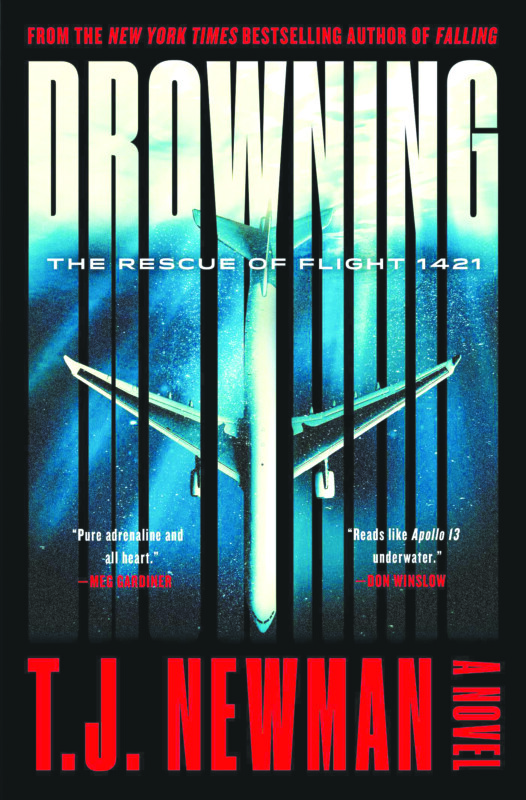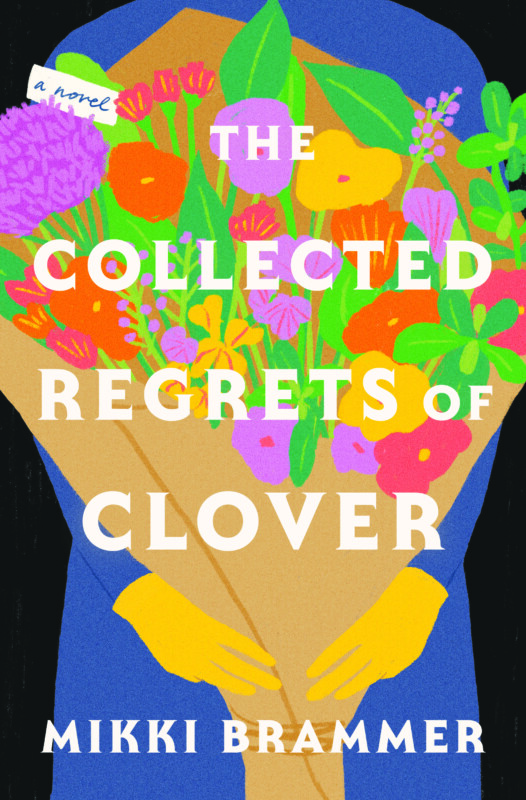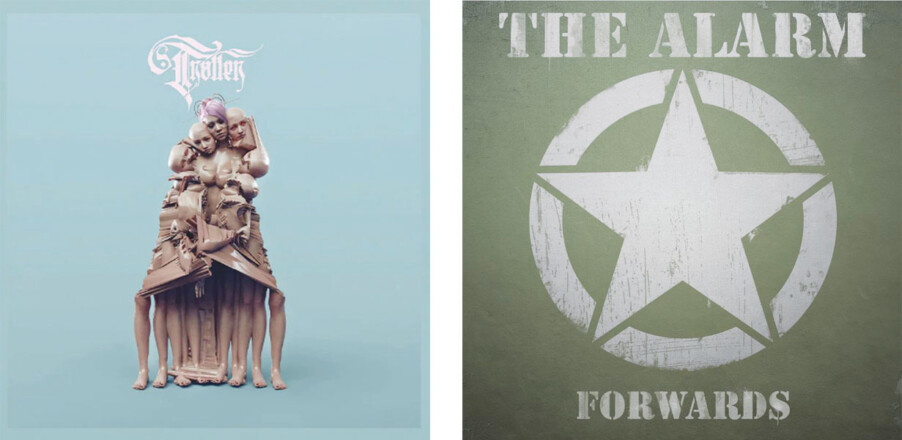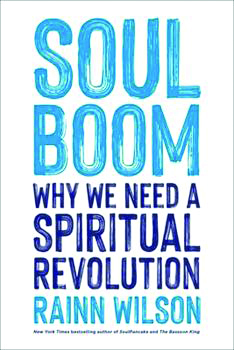Drowning, by T.J. Newman (Avid Reader Press, 293 pages)
If you haven’t read T.J. Newman yet, best get started. She is one of the hottest names in publishing right now, having seemingly emerged out of nowhere to sign multi-million deals that will put her two novels on the big screen. The first was 2021’s Falling; her new book is Drowning. Both are fast-paced thrillers set on a plane, drawing from Newman’s experience as a flight attendant, a job she took after failing to capitalize on her musical theater degree on Broadway. Both are best read on terra firma, not in the air.
In Falling, Newman gave us a Coastal Airlines pilot who learns midflight that his family has been kidnapped by terrorists who will kill his family if he doesn’t intentionally crash the plane. Coastal Airlines — the most cursed fictional airline since the TV show Lost gave us Oceanic — is back in Drowning, in which a plane with 99 souls on board has a catastrophic engine failure less than two minutes into a flight out of Honolulu and has to “ditch” — airline lingo for the dreaded “water landing.”
It’s unclear why Capt. Chesley “Sully” Sullenberger could land an Airbus A320 on the Hudson River without fatalities in 2009, while Coastal Flight 1421 — an Airbus A321 — could not, but ours is not to wonder why. Ours is to sit nervously in the grips of a book that author Don Winslow described in his jacket blurb as “Apollo 13 underwater.” The squeamish and claustrophobic will never make it through the movie when it comes out, but can probably suffer through the book just fine.
Probably.
The story revolves around a family of three which used to be a family of four — an engineer named Will, his estranged wife Chris, and their 11-year-old daughter Shannon. The couple had another daughter who died in an accident, and the relationship had broken from the weight of the tragedy.
Shannon is spending two weeks away from home, and Will is accompanying her on the flight because he is so anxious about something happening to his only surviving child. That setup seems unnecessarily campy given that the stakes are already so high, but Newman employs every trick to keep her readers engaged.
The entire family is brainy — Will had designed their Honolulu home so that even the position of the sun works to make it comfortable, and Chris is an industrial diver who — conveniently, as it turns out — owns an underwater salvage company. One criticism of Newman’s first book is that the circumstances so much require the suspension of disbelief, and that is certainly true here. (What are the odds that the mother of one of the children trapped on an underwater plane is an industrial diver? One hundred percent in a T.J. Newman book.)
There is no lengthy build-up to the disaster: Will notices the engine on fire on the first page, and we are rocketed into assorted passengers’ lives as they frantically try to come to grips with what is happening. We meet the flight attendants Molly and Kaholo, the co-captain Kit, the elderly couple who had traveled to Hawaii to celebrate their anniversary, the newlyweds, the newly divorced woman taking her first solo vacation, the unaccompanied minor, the requisite jerk whose death we won’t mind. When the plane goes into the water, some passengers die right away; others make the ill-fated decision to exit and take their chances in the water.
Only 12 stay behind — some following the advice of Will, who realized the risks of exiting the plane as a fire raged and fuel spilled into the sea — others because they just can’t get out in time. Not long afterward, the plane starts to sink and eventually comes to a precarious stop on the point of a cliff. Water is seeping into the cabin, but there is enough air that Will, Shannon and the other passengers can function normally, at least for the time being. Each new section of the book ominously gives an update on how much oxygen they have left: “2:48 p.m. 2 hours and 47 minutes after impact. Approximately 2.5 hours of oxygen inside plane.”
Meanwhile, on land, the military-led rescue operation somewhat improbably grows to involve a certain industrial diver whose estranged spouse and child happen to be on the plane. There is conflict over which of the severely limited rescue options has the least chance of killing the people inside the plane and those who are trying to rescue them.
The language is sparse to the point of comical when viewed with a critical eye: “A baby started to wait. The mother held her tight and sang a soft song into her ear. No one had a clue what was going to happen. Uncertainty brought fear. Fear created anxiety. They prayed. They cried. They texted goodbye to their loved ones.”
So you already know where this is going. And you probably have a decent idea how this will end. But that’s OK, because Newman, who looks to be her generation’s James Patterson, is a master at the carrot-and-stick formula that builds tension into every bite-sized chapter. A lot can go wrong even after a commercial jet lands in the ocean, let’s put it that way. And things are going wrong long past the point at which you’d think things should be starting to resolve.
There was a full-scale bidding war over the film rights, even before the book was released May 30. The excessively campy video trailer for Drowning says “the best film of the summer is a book.” It’s not wrong. The book reads like a screenplay, and therefore must be judged like one. No one will swoon over Newman’s prose, but in the summer thriller genre, in which literary standards relax quite a bit (like office dress codes on Casual Friday), she’s at the head of her class. B






